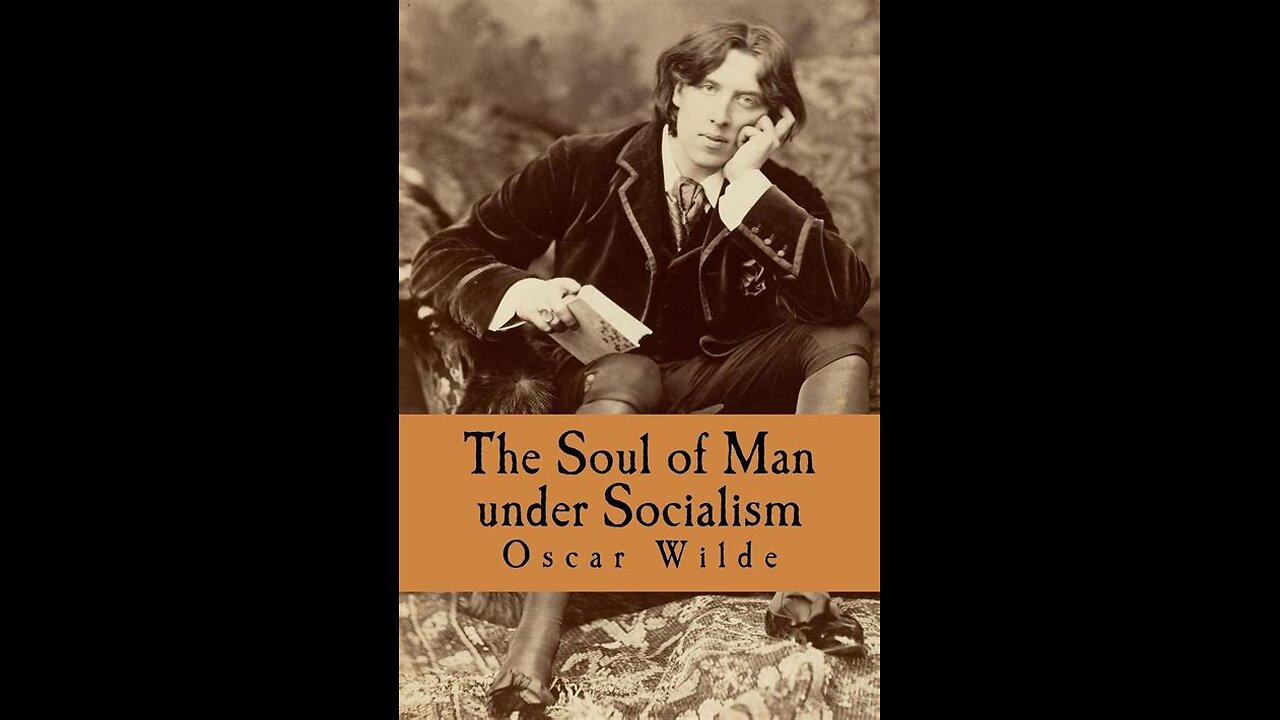Premium Only Content

The Soul of Man under Socialism by Oscar Wilde | Summary and Critique
Buy Here: https://amzn.to/4a67ZnW
"In Oscar Wilde's essay ""The Soul of Man under Socialism,"" he presents a provocative and impassioned critique of the prevailing socio-economic system of his time and proposes an alternative vision rooted in individualism and artistic freedom.
Wilde begins by critiquing the existing capitalist society, which he sees as oppressive and inhibiting to the development of the individual. He argues that under capitalism, people are reduced to mere commodities and are driven by the pursuit of wealth and material possessions, neglecting their true potential and creative instincts.
Wilde advocates for a socialist society that eliminates the barriers between the rich and the poor, where individualism and personal freedom can flourish. He suggests that true socialism should not seek to regulate or control individuals but rather provide the necessary conditions for each person to realize their unique talents and desires.
The essay also emphasizes the importance of aesthetics and art in shaping society. Wilde argues that art should not be seen as a means to an end or a tool for moral instruction. Instead, he contends that art should exist for its own sake, free from societal constraints and censorship. He envisions a society where artists are liberated from the need to conform to popular tastes or commercial interests, allowing them to create art that is authentic and true to their artistic vision.
""The Soul of Man under Socialism"" has garnered both praise and criticism over the years. Supporters of the essay applaud Wilde's advocacy for individualism and personal freedom within a socialist framework. They appreciate his emphasis on the importance of art and aesthetics, seeing it as a rallying call for the pursuit of beauty and self-expression.
Critics argue that Wilde's essay lacks a practical blueprint for achieving his idealistic vision. They contend that his arguments rely heavily on rhetoric and fail to address the practical challenges and complexities of implementing a socialist society. Some argue that Wilde's focus on the individual and artistic freedom overlooks the collective concerns and responsibilities inherent in any society.
Moreover, Wilde's essay has been criticized for its limited engagement with issues of class and economic inequality. Critics assert that his vision of socialism does not adequately address the structural issues that perpetuate social and economic disparities. Some also accuse Wilde of promoting a form of individualism that is disconnected from broader social concerns and struggles.
Despite its shortcomings, ""The Soul of Man under Socialism"" remains a significant work that challenges prevailing notions of society, economics, and the role of art. It continues to provoke discussions on the tension between individual freedom and collective well-being, as well as the relationship between art and society. Wilde's eloquent and impassioned arguments serve as a testament to his belief in the transformative power of individualism and the liberating potential of a society that fosters artistic expression and personal freedom."
-
 16:07
16:07
Chris From The 740
1 day ago $0.30 earnedMy BIGGEST Problem with the Ruger RXM – FIXED by Liberty Build Co!
9.34K1 -
 13:29
13:29
Professor Gerdes Explains 🇺🇦
12 hours agoUS Deploys Warships to Venezuela's Coast: A Show of Force Against Putin's Ally
2.65K -
 12:12
12:12
The Shannon Joy Show
13 hours ago🔥Carcinogens & Fetal Cells In Your New ‘Universal Vaccine’🔥
9.96K2 -
 10:38
10:38
ariellescarcella
12 hours agoOnlyFans Models Fake Being Trans : Queer Activists Are PISSED
2.85K4 -
 8:00
8:00
Congressman Eli Crane
16 hours agoThe D.C. Crime Problem | Democrats' Greatest Lies – Vol.2
37.6K14 -
 2:05:26
2:05:26
Side Scrollers Podcast
20 hours ago4Chan SUES UK Government + Craig Has Mental Illness Fatigue + Knight Rider REBOOT | Side Scrollers
42.1K8 -
 19:26
19:26
GritsGG
1 day agoChat Picked My Hair Color! All Pink Loadout & Operator Challenge!
32.4K4 -
 10:32
10:32
Nikko Ortiz
1 day agoFunniest Fails Of The Month
62K8 -
 1:27:34
1:27:34
TruthStream with Joe and Scott
4 days agoArchitect Richard Gage: 911 truths and more #482
36.8K8 -
 LIVE
LIVE
Lofi Girl
2 years agoSynthwave Radio 🌌 - beats to chill/game to
236 watching